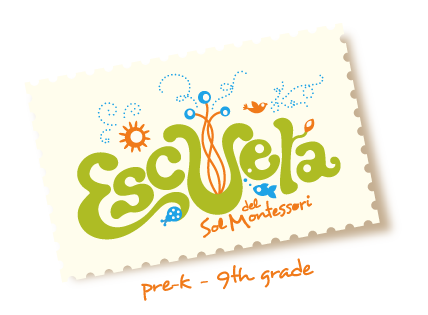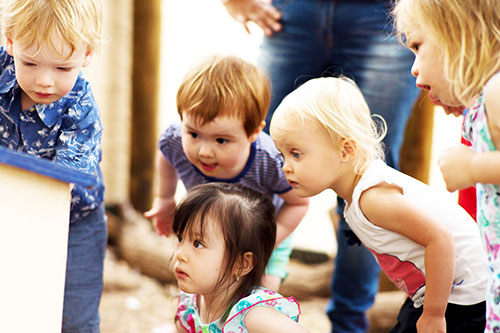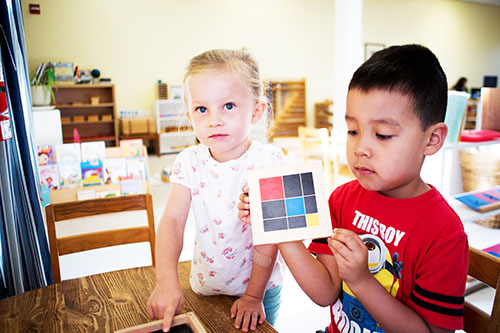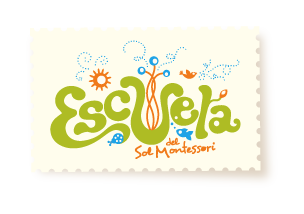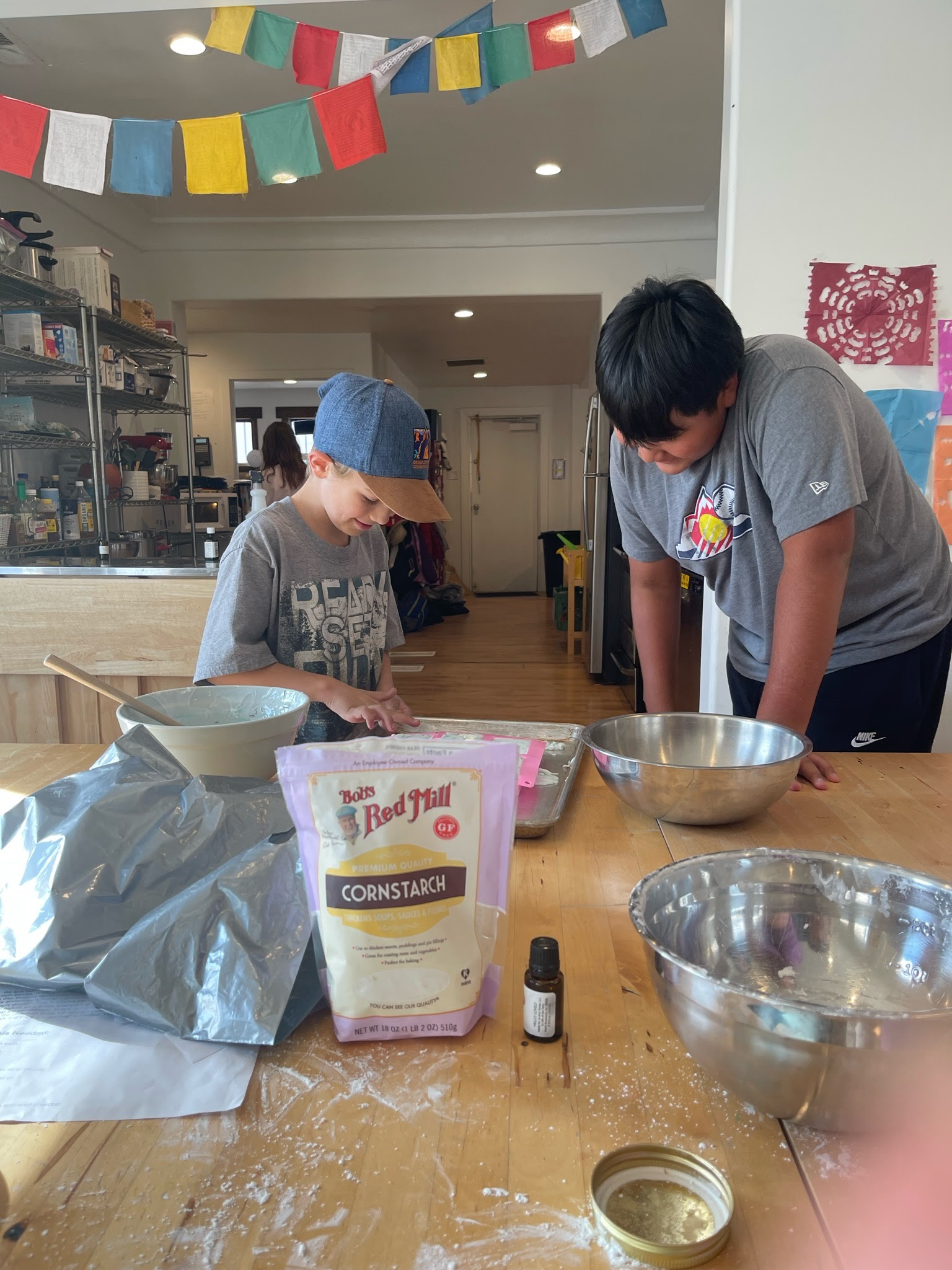
More than a fundraising project or a micro-business, production and exchange is a way for students to contribute to their community. It takes on many forms and reaches out into the wider community beyond the school campus. Currently, Jr. High students are creating bath and body products for their business, [UN]Earthed. These products are made with ingredients grown and harvested on Escuela’s urban farm, an outdoor laboratory for hands-on science. Students conceive of and create various products with recipes they research and test themselves.
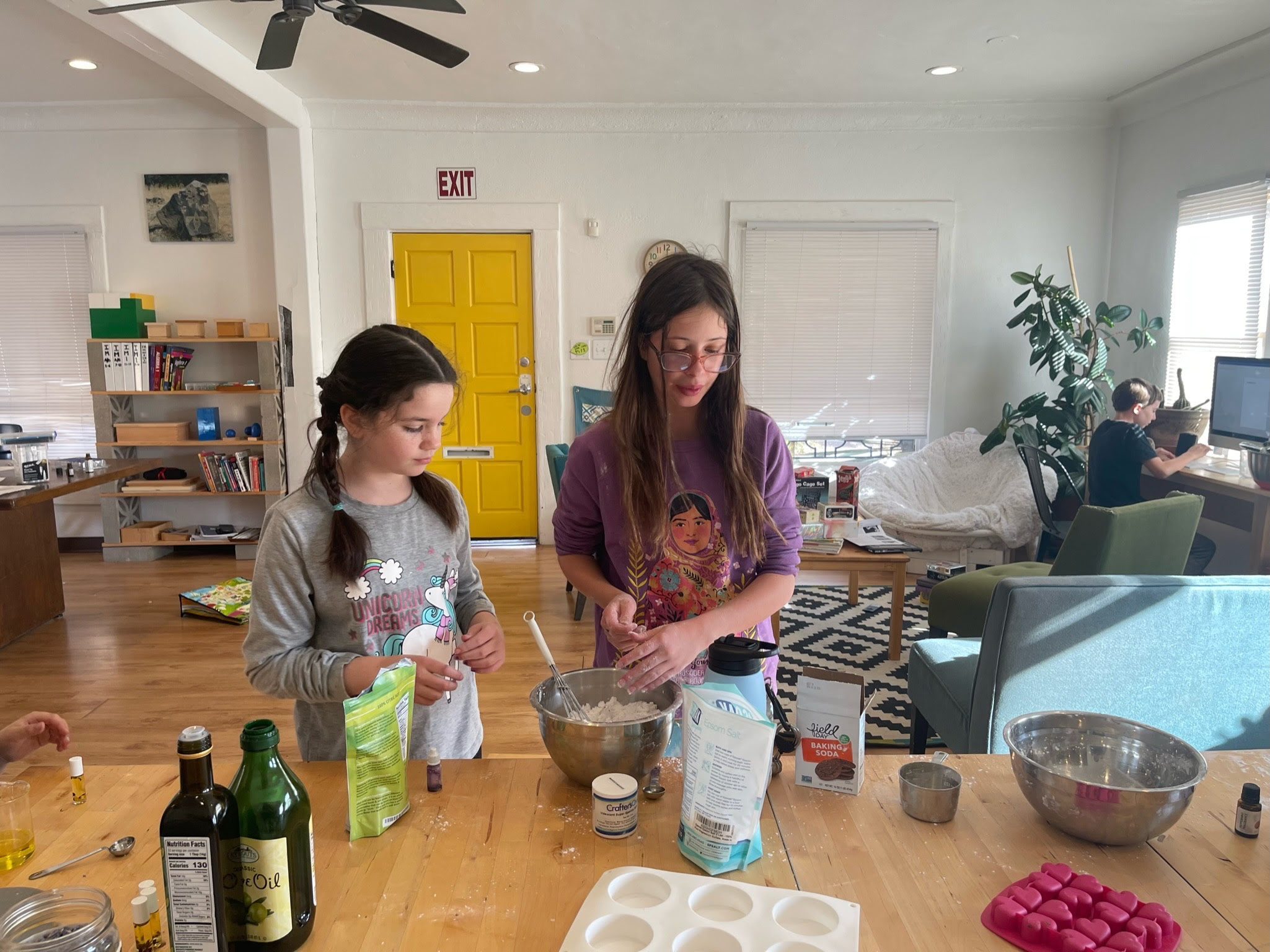
In past years students have volunteered to help local farmers in exchange for crops or skill sharing. Currently, they are using what they learned in Spanish vocabulary lessons to create games for sale to younger children that promote learning a second language. The students have also reached out and engaged with the other classrooms as they developed a school-wide composting system, and gave lessons about composting throughout the school.

